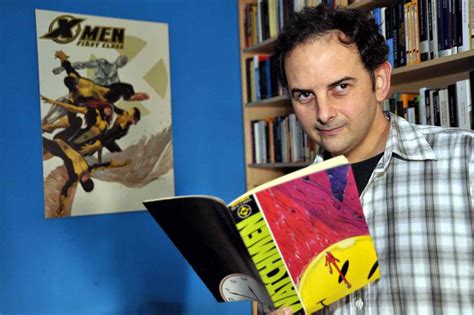Цитата Элизабет Маккракен
Для некоторых людей история — это просто то, перед чем ваша жена хорошо выглядит. Это то, что отлито из бронзы, обрамлено в тона сепии или разыграно с помощью восковых манекенов и старинной мебели. Это происходит в стеклянных пузырях, наполненных водой и кусками пластикового снега; это напечатано на сувенирных карандашах и кратко изложено в перепечатанных газетах. История в наши дни записана в памятных вещах. Если вы не можете купить сумку для покупок, которая намекает на что-то, люди не поверят, что это когда-либо происходило.
Темы цитат
Действованная
сумка
Верьте
бронзе
Пузыри
Литые
куски
Когда-либо
заполненные
Обрамленный
фасад
Мебель
Стекло
Хорошее
событие
История
Взгляды
Памятные вещи
Газеты
Сегодня
вне
Карандаши
Люди
Период
Место
Покупка
пластика Записанные
покупки
Просто
Снег
Некоторые
люди
Что-то
Сувенир
Стоящий
берет
звуки
Вода
Воск
Жена
Ваша
Связанные цитаты
Скажем, история — это то, что было. Запись того, что произошло, — это то, как каждый человек видит эти события. Они уже были отфильтрованы. Когда историк или биограф вступает во владение, история уже не является в точности тем, что произошло, потому что происходит процесс отбора; невозможно писать о ком-либо, о любом событии, в любой период времени, не навязывая в чем-то, даже бессознательно, свои стандарты, свои ценности.
Жизнь и учеба убедили меня в открытости истории. В истории нет неизбежности. Размышление о том, что могло бы произойти, что могло бы произойти, является необходимым элементом в попытке понять, что произошло на самом деле. И если, как я считаю, отдельные акты порядочности и мужества имеют значение, то их нужно фиксировать и помнить.
Мое тело что? Например, 99 процентов воды или что-то в этом роде. Но я пью всю свою воду из пластиковых контейнеров. Если вы понимаете, о чем я? Что такое пластик? Мое тело состоит не на один процент из пластика, но то, как я глотаю воду, которая течет по всем моим венам, почти полностью состоит из пластика. Что-то не так с этим.
Правителей, государственных деятелей, нации обычно настойчиво рекомендуют тому учению, которое предлагает опыт истории. Но опыт и история учат тому, что люди и правительства никогда ничему не научились из истории и не действовали на принципах, выведенных из нее. Каждая эпоха связана с такими своеобразными обстоятельствами, обнаруживает состояние вещей столь строго идиосинкразическое, что ее ход должен регулироваться соображениями, связанными с ней самой и только с ней самой.
Некоторые создают свои миры, не подозревая об этом. Их вселенные — это семена кунжута, и трехдневные выходные, и гудки, и ободранные коленки, и физика, и коряги, и изумрудные серьги, и книги, брошенные в ванну, и дырки в гитарах, и пластмасса, и сочувствие, и твердая древесина, и тяжелая вода, и высокие черные чулки, и история викинги, и медь, и старение, и сгоревшие волосы, и развалившиеся суфле, и невозможность не влюбиться в художественном музее в человека, стоящего рядом с тобой и смотрящего на ту же картину, и все остальное, что просто происходит и есть.
Идентичность продается в национальном капитализме как собственность. Это то, что вы можете купить или купить отношение к чему. Или это то, что у вас уже есть, что вы можете выразить: моя мужественность, моя странность. Но идентичность не обязательно должна быть просто подписью к образу неизменного конкретного «я». Это также теория будущего, истории.
Опыт и история учат тому, что нации и правительства никогда ничему не научились из истории и не действовали на основании каких-либо уроков, которые они могли из нее извлечь. Вариант: Чему учит опыт и история, так это тому, что люди и правительства никогда ничему не учились из истории и не действовали по выведенным из нее принципам.
На прикроватной тумбочке Билли стоял натюрморт — две таблетки, пепельница с тремя сигаретами в пятнах губной помады, одна еще тлеющая сигарета и стакан воды. Вода была мертва. Такие вот дела. Воздух пытался выбраться из мертвой воды. Пузыри цеплялись за стенки стакана, слишком слабые, чтобы выбраться наружу.


































